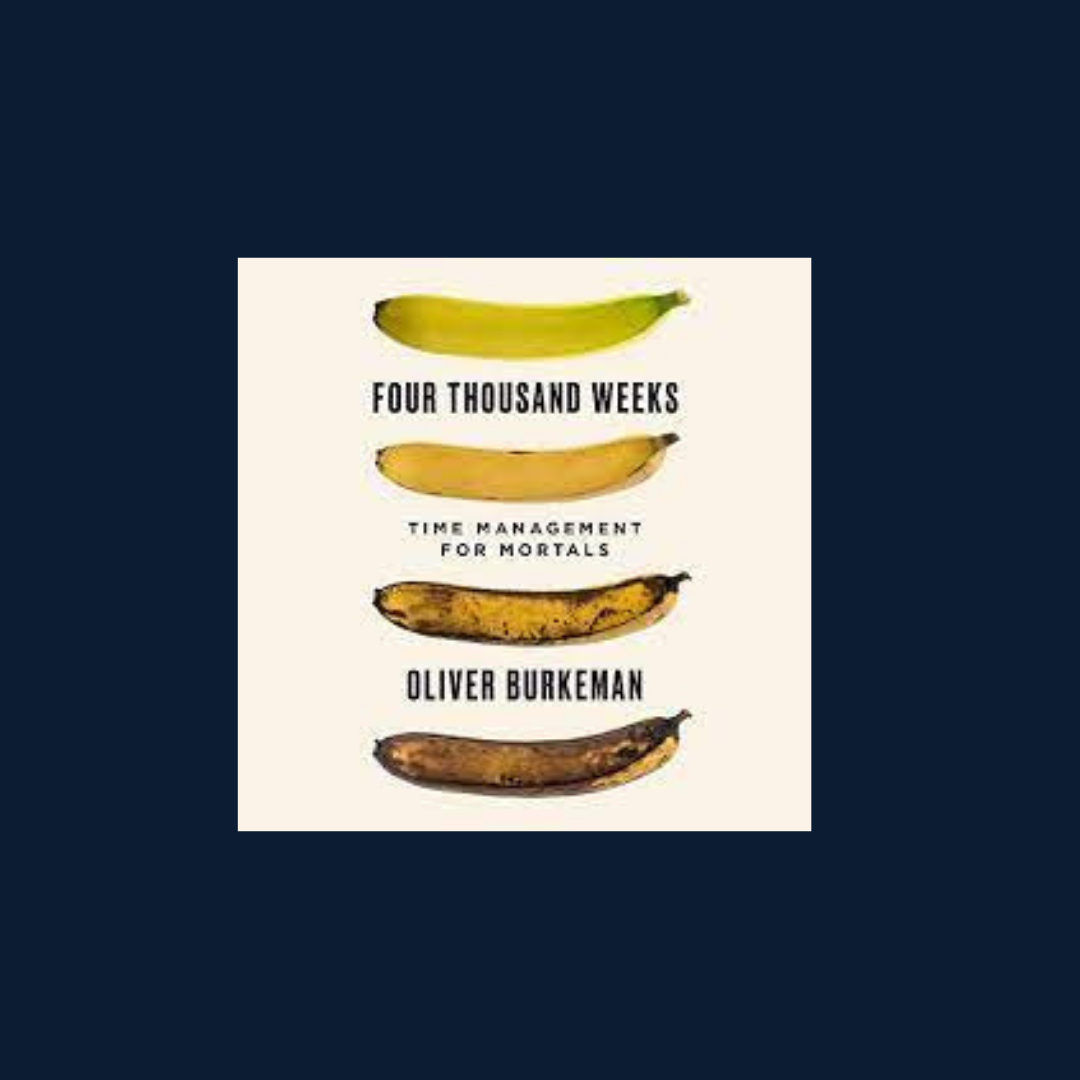
“Four Thousand Weeks: Time Management For Mortals” by Oliver Burkeman
Rating: 4/5
Four Thousand Weeks: Time Management For Mortals is not a typical “time management” book. Rather than leading with productivity tips and hacks, Oliver Burkeman asks us to examine our mindset around the concept of time. In this book, Burkeman argues that, “The real problem isn’t our limited time. The real problem is that we’ve unwittingly inherited, and feel pressured to live by, a troublesome set of ideas about how to use our limited time.” (page 17)
The first 90% of the book is more philosophical than practical. Burkeman points out some uncomfortable notions about time and argues that it is freeing to accept these truths. Once we accept the finitude of time, stop thinking about time as a resource to be used, and recognize that our productivity obsession often serves a hidden emotional agenda, then we will feel more free to take responsibility for how we want to use our time.
While all of these ideas got me thinking about time in general, how I’ve chosen to use my time in the past, and how I want to use my time now and in the future, I did find the first 90% of the book to be a slower-than-expected read (read it over 4 weeks). There was definitely some repetition in the book that slowed me down. Or maybe I was letting the ideas simmer through my slow read. While the first 90% of the book wasn’t a page turner, I’d say that the last 10% was (read it in one short sitting). I felt a real energy shift in myself at chapter 14 (the last chapter) and it continued on through the appendices. I think that is maybe when I started to feel the book shift from philosophical to practical.
The part of the book that I will continue to reflect on are the five questions posed in chapter 14:
- Where in your life or your work are you currently pursuing comfort, when what’s called for is a little discomfort?
- Are you holding yourself to, and judging yourself by, standards of productivity or performance that are impossible to meet?
- In what ways have you yet to accept the fact that you are who you are, not the person you think you ought to be?
- In which areas of your life are you still holding back until you feel like you know what you’re doing? It’s easy to spend years treating your life as a dress rehearsal.
- How would you spend your days differently if you didn’t care so much about seeing your actions reach fruition?
Overall, I’d say that the entire book is worth reading but if you are short on time, start at chapter 14 and read the appendices. That being said, as I re-read these five questions above, I’m realizing that reading the first 90% of the book got me thinking about different kinds of responses than I would have had before reading the book. So, read the book. It’s worth it.